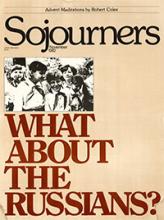The ride to work is a bit different now. It used to be we boarded the bus a block away and rode past streets that descended in alphabetical order down the 14th Street "riot corridor," a section of Washington that exploded after Martin Luther King was killed 14 years ago. At T Street we passed the heroin dealers; at N, the prostitutes; and getting off at L we walked along the margin of the pornography district.
But urban redevelopment, beginning at Pennsylvania Avenue and spreading out past the construction of a new multi-block convention center, had begun its assault on L Street. Our small office building was being swallowed up by mammoth office complexes, modern esplanades, and gushing fountains, which appeared almost overnight where gas stations and family-run businesses had been. The owner of our building offered to let us buy it--for three-quarters of a million dollars.
Across the street from us, the half-block-long Secret Service building stood like a fortress. The protectors of ambassadors and presidents and foreign dignitaries watched us come and go. One day one asked us, "Who are you anyway? You walk around in regular street clothes, and go in and out all day long with ice cream cones." Perhaps we didn't fit in after all. So we moved.
Exorbitant real estate prices and the lack of facilities there continue to frustrate our dream of moving our office building, which contains the magazine and our peace ministry, to our neighborhood. We still hold on to the hope that someday we can work alongside those in our community, Sojourners Fellowship, who work full time with our neighbors, organizing tenants and providing services.
Read the Full Article

